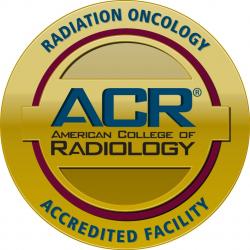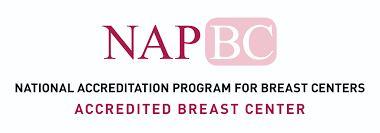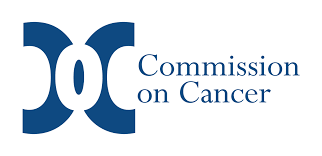Cancer center in the Bay Area
At Good Samaritan Hospital in Silicon Valley, we have earned recognition from the Commission on Cancer as a Comprehensive Community Cancer Program. This is because we offer a variety of high-quality cancer treatment services provided by our board-certified cancer specialists and compassionate support staff. Our hospital also remains on the forefront of cancer care by using state-of-the-art technology and the latest cancer treatments in chemotherapy, radiation therapy and surgical oncology.
To learn more about our cancer care, please call askSARAH at (844) 482-4812.
Recognition




Cancer treatment hospital
Our inpatient oncology unit offers 18 private rooms on the fifth floor of the hospital. We have created a calming environment that feels quiet and secluded. There is also a sleeping area available in every room, so family and friends can remain comfortable throughout treatment.
During a stay in our oncology unit, patients have access to:
- Our Cancer Resource Center, where patients and families can find additional information on diagnoses and treatments
- Free WiFi
- Healing art services, including massage therapy and reiki
- Inpatient rehabilitation
- On-site volunteers to assist throughout the hospital stay
- Telemetry monitoring, extended heart rate recording
Types of cancer we treat
We want to make sure as many patients as possible have access to the care they need, which is why we treat multiple types of cancer, including:
- Blood cancers, including:
- Leukemia
- Myeloma
- Breast cancer
- Brain cancer
- Gastrointestinal cancers, including:
- Colon cancer
- Esophageal cancer
- Liver and bile duct cancers
- Pancreatic cancer
- Rectal cancer
- Stomach cancer
- Gynecologic cancers, including:
- Cervical cancer
- Ovarian cancer
- Uterine cancer
- Lung cancer
- Lymphatic cancer
- Skin cancer
- Urologic cancers, including:
- Bladder cancer
- Kidney and renal cancers
- Prostate cancer
Our treatment services
Our experienced staff offer the latest treatments and techniques in cancer care. Treatment plans may include:
- Medical oncology
- Outpatient infusion services
- Radiation oncology
- Robot-assisted radiosurgery
- Surgical oncology
- Palliative care
- Cancer rehabilitation
Breast cancer screening and treatment
We proudly provide patients access to our Breast Care Center, where we perform screening and diagnostic mammograms. Here, our imaging specialists help women maintain their breast health. We identify any abnormalities to increase chances for early detection of breast cancer.
If an abnormality is found, patients may receive a breast biopsy to determine if cancer is present. If a cancer diagnosis is confirmed, our oncologists and breast cancer nurse navigator are here to help patients make important treatment decisions.
Breast cancer nurse navigation
We provide our patients with access to a breast cancer nurse navigator as an asset throughout cancer treatment and recovery. Our navigator is a registered nurse who specializes in breast cancer care and is available to support patients and their families from diagnosis all the way into survivorship.
Our nurse navigator may assist with:
- Helping patients better understand their diagnosis
- Educating patients about specialists' roles on their healthcare team
- Understanding treatment, including surgical options
- Explaining what patients should expect during a hospital stay
- Informing patients about procedures, tests and appointments that will occur prior to surgical treatment
- Notifying patients on community resources and support groups available to them
- Detailing what to expect during at-home care after a hospital stay
- Providing follow-up care
- Monitoring long-term progress
Breast cancer treatment options
We provide the following cancer treatment services:
- Advanced hormone therapy—Often used in addition to other treatments, this therapy uses prescribed drugs to help limit growth in cancers that are hormone receptor-positive (breast cancer cells with estrogen or progesterone).
- Lumpectomy—This surgical treatment removes just the portion of the breast that has cancer cells. This surgery helps patients preserve a more natural breast shape by only removing part of the breast tissue.
- Mastectomy—This procedure removes a cancerous tumor by removing all breast tissue. This procedure maybe used as a treatment and/or prevention strategy.
- Breast reconstruction—Following surgical breast cancer treatment, many patients are able to undergo reconstructive surgery to rebuild the breast mound(s) to better match the shape and size of the natural breast.
- Radiation therapy—This oncology treatment uses targeted X-rays to destroy cancer cells. It is used to kill any remaining cancer cells after breast surgery to remove a tumor.
Lung cancer treatment program
Our cancer specialists are here to provide full-service lung cancer treatment, which may include chemotherapy, radiation therapy and/or surgery. We also perform radiofrequency ablation (RFA) of lung tumors, which is an outpatient surgery that eliminates cancer cells using heat. For some patients, RFA may be an effective treatment on its own, but other patients may receive RFA in conjunction with another form of cancer treatment.
Lung cancer symptoms
Often, lung cancer symptoms do not appear until the disease has reached its advanced stages. Symptoms that do appear can vary from patient to patient, but may include:
- Chronic cough
- Coughing up blood
- Fatigue
- Shortness of breath
- Unintentional weight loss
Lung cancer screenings
We offer noninvasive, low-dose computed tomography (LDCT) lung cancer screenings for patients who may be at risk of lung cancer. LDCT is designed to catch cancer in its early stages. Those at high risk who are routinely screened are more likely to detect lung cancer at an earlier, more treatable stage.
The low dose CT screening is painless, only takes a few minutes and exposes the patient to five times less radiation compared to a regular CT scan.
Who should get lung screening?
Talk to your primary care physician about a screening test if you match the following criteria:
- People between 50 and 77 years old
- People who have at least a 20 pack-year smoking history
- Pack years calculation: (number of packs smoked per day) x (number of years smoking) = pack-year smoking history
- People who are either still smoking or have quit smoking within the last 15 years and are asymptomatic, meaning they have no symptoms of lung cancer
A CT scan requires a physician's order. Please talk with your doctor if you are interested in having this screening.
Smoking cessation program
We are proud to offer a smoking cessation program to help patients stop smoking and reduce their future risk for lung cancer. Our program is held every Thursday from 6:00pm to 7:30pm at our hospital. The program is lead by a certified tobacco treatment specialist.
To register for this program or find out more information, please call (408) 358-8467.
Our cancer care team
Our hospital takes a multidisciplinary team approach. The team includes:
- Breast cancer nurse navigator
- Case managers
- Certified oncology nurses
- Clinical pharmacists
- Internal medicine physicians
- Medical oncologists
- Occupational therapists
- Oncology nurse coordinators
- Oncology social workers
- Physiatrists
- Physical therapists
- Radiation oncologists
- Rehabilitation nurses
- Respiratory therapists
- Speech therapists
- Surgical oncologists
Oncology nurses
Our nurses are here to provide top-quality cancer care that includes family support and education throughout cancer treatment. These nurses are available to help patients and their families understand what to expect and answer any questions or concerns that come up. Additionally, our nurses work to coordinate care with other hospital services, so every patient has access to the multidisciplinary care they need during treatment.
Oncology social workers
Our oncology social workers provide individual and family consultations and are also available for inpatient counseling. Social workers help patients by coordinating care, facilitating post-hospital care and connecting patients and families to community resources.
Additional support resources
For patients or family members who are interested in learning more about cancer treatments and support services in our community, please look to these credible sources:
- Breast cancer resources
- National resources
- Resources in the Bay Area
About Sarah Cannon Cancer Institute
As part of Sarah Cannon, the Cancer Institute of HCA Healthcare, our hospital provides comprehensive cancer services with convenient access to cutting-edge therapies for people facing cancer in our community. From diagnosis to treatment and survivorship care, our oncology expertise ensures you have access to locally trusted care with the support of a globally recognized network.
askSARAH helpline
Have cancer questions? We can help. askSARAH is a dedicated helpline for your cancer-related questions. Our specially trained nurses are available 24/7, and all calls are confidential. Contact askSARAH at (844) 482-4812.

